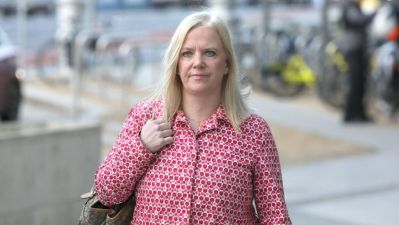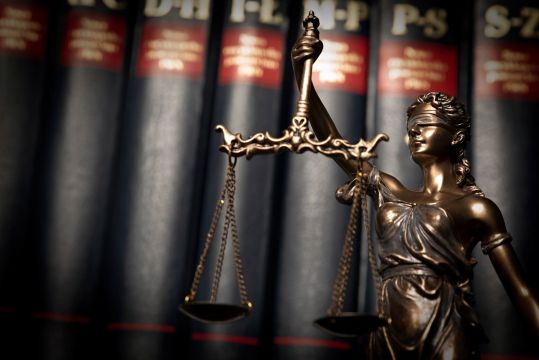A jury has heard that a former employee of Custom House Capital would not have encouraged his father, who invested €100,000, to put a “red cent” into the company if he had had any concerns.
On the fourth day of the trial of Ciara Kelleher (51), Graham O'Reilly said under cross-examination that he would never have asked his father to invest €100,000 in the company if he had had any understanding of what was going on.
Ms Kelleher, of Blackhorse Ave, Dublin 7, has pleaded not guilty at Dublin Circuit Criminal Court to one count of conspiring with others to defraud investors in and clients and customers of Custom House Capital (CHC) Ltd by intentionally misleading them as to where or how their assets had been placed in the investment firm.
The offences are alleged to have happened within the State on dates between October 2008 and July 2011.
Mr O'Reilly, who worked as a property administrator at CHC at that time, agreed with Michael Bowman SC, defending, that with the benefit of hindsight, he would have told his father “to keep his money in his pocket”.
The witness told Lorcan Staines SC, prosecuting, that he came across information on the systems that suggested money wasn't where it should be when assisting KMPG.
He said if he had any concerns before this time, he believed they were small and highlighted to his line manager.
Mr O'Reilly said he didn't have much experience at the time and thought everything was normal, until he learnt otherwise.
'Things went awry'
Mr Bowman put it to Mr O'Reilly that he was drafted in to work over a weekend after “things went awry in CHC” when the company received a letter from Appian on July 8th, 2011 “saying that there was a problem”.
Mr O'Reilly agreed he worked that weekend, preparing a document which was later handed to KPMG, and he gradually realised things weren't as they should be.
The witness accepted that he made statements to a Central Bank investigation in 2011, the Pension Board in September 2012 and to gardaí in 2015, but said he could not recall much of these conversations.
He agreed with Mr Bowman that he may have spoken to the Pension Board and gardai with “the benefit of hindsight”.
Mr O'Reilly agreed with defence counsel that staff working at CHC were concerned when issues began to emerge that the “finger of suspicion” might point at them.
'Rotten apples'
He accepted Mr Bowman's statement that staff attempted to distance themselves from some practices, “not because people knew what was going on, but because they were concerned about being contaminated by the four rotten apples in that barrel”.
Michelle Donnelly, who worked as an accounts assistant at CHC, agreed with defence counsel that she was present when Ms Kelleher asked Paul Lavery, head of finance, about developing a more streamlined process for issuing client valuations. She said Ms Kelleher's priority was to get the valuations issued and to reduce the burden on her team.
She agreed with defence counsel that Ms Kelleher was anxious for the backlog to be cleared as quickly as possible as CHC's CEO Harry Cassidy would have been putting pressure on her to issue client valuations and invoices.
Ms Donnelly accepted Mr Bowman's statement that 'Unity', the IT system used by CHC, was not fit for purpose. She said she took Mr Lavery's explanation at face value that the system could not produce valuations without a manual process.
Ms Donnelly agreed with defence counsel that she understood no issues were raised by auditors or the regulator during 2008 or 2009.

Mr Bowman asked Ms Donnelly about the sale of part of the business to Appian and her conversations with Bill Cahalin, who worked in compliance for Appian. Ms Donnelly said she explained the back out procedure to Mr Cahalin.
Defence counsel read some notes taken by Mr Cahalin about this meeting, which Ms Donnelly said were not accurate. She said she did not speak with him about payments, only the back out procedure.
She agreed with prosecuting counsel that there was a misunderstanding with Mr Cahalin, who misinterpreted what she said.
The trial resumes on Thursday before Judge Orla Crowe and the jury.







